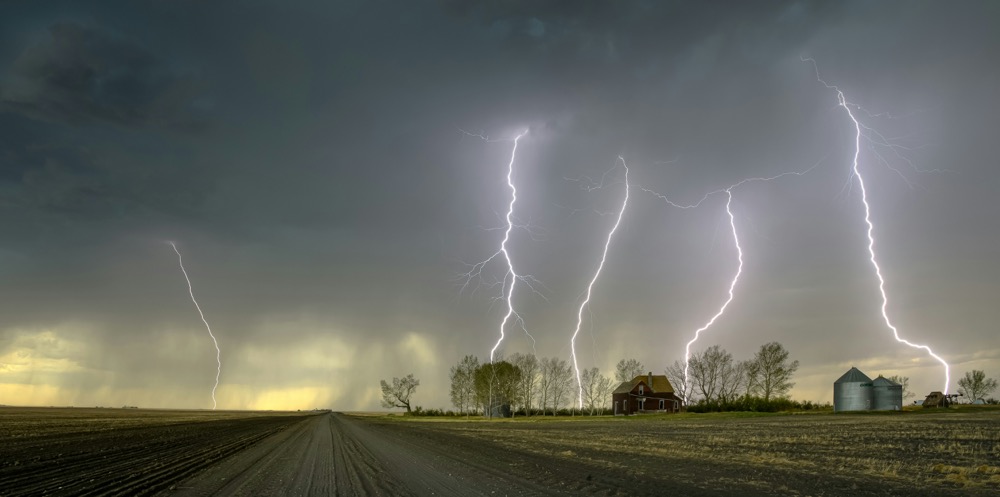(Acts 12:1-2 NIV) It was about this time that King Herod arrested some who belonged to the church, intending to persecute them. He had James, the brother of John, put to death with the sword.
It is difficult to distinguish his personality from his brother. The pair is nicknamed Sons of Thunder; we can imagine a passionate, reckless duo. The gospel accounts shed light on why they might have received this moniker. One of the stories we will take up this Sunday reveals their impatient, hot-tempered disposition. As we reflect on this encounter, it is easy to draw parallels with the issue of discerning in churches.
We find the record in Luke 9:51-56. Jesus is on his way to Jerusalem; he will be crucified. The journey will take the unlikely route through Samaria. The Jews would often travel around Samaria because of deep-seeded contempt for the Samaritan people; yet Jesus purposefully made the journey through this region. He sends the reservation crew ahead to line up accommodations.
(Luke 9:52 NIV) And he sent messengers on ahead, who went into a Samaritan village to get things ready for him;
They would need to make sure that housing would be provided. But when the messengers return, they bring disappointing news.
(Luke 9:53 NIV) but the people there did not welcome him, because he was heading for Jerusalem.
If we read the story of the Samaritan woman in John 4, we discover differing belief systems regarding worship locations.
(John 4:20 NIV) Our ancestors worshiped on this mountain, but you Jews claim that the place where we must worship is in Jerusalem.”
This is why Jesus and his followers were shunned. They would need to make other arrangements. Perhaps they are moving on to plan B when James and John speak up. The Sons of Thunder were not content to let the matter rest; they are irritated at the rejection. They suggest Plan C.
(Luke 9:54 NIV) When the disciples James and John saw this, they asked, “Lord, do you want us to call fire down from heaven to destroy them?”
If we read this verse in the KJV, we see an additional reference to Elijah based on later (more unreliable) manuscripts.
(Luke 9:54 KJV) And when his disciples James and John saw this, they said, Lord, wilt thou that we command fire to come down from heaven, and consume them, even as Elias did?
The Samaritan region held historical significance; it was once a part of the Northern Kingdom of Israel. It was in this area where Elijah called down fire from heaven to consume King Ahaziah’s men. If you read the story in 2 Kings 1, we find a king who is consulting a pagan god. King Ahaziah is likely planning to execute Elijah; God is using this extreme measure to reveal his power to a king who has turned to pagan gods. Certainly, God’s actions were appropriate for Elijah’s day and time.
James and John were mindlessly turning to Elijah’s methods. They knew Jesus has the power to replicate Elijah’s phenomenon but did not consider the context. Jesus was on a different mission; the situation was new. He was not operating under the same conditions. Jesus clearly rejects their idea.
(Luke 9:55 NIV) But Jesus turned and rebuked them.
Too often, we haphazardly attempt to implement old systems. If it was good enough a few years ago, why would it not work now? The discipline of discerning assumes a constant evaluation of context. Our world is changing and God is constantly on the move. Our mantra should be,
(Isaiah 43:19 NIV) See, I am doing a new thing! Now it springs up; do you not perceive it? I am making a way in the wilderness and streams in the wasteland.
As James and John would later experience the empowering of the Holy Spirit, they would understand the folly of their suggestion. Jesus was on a mission of salvation. As Luke introduced this story, he pointed out,
(Luke 9:51 NIV) As the time approached for him to be taken up to heaven, Jesus resolutely set out for Jerusalem.
May we continually be a people who discern the movement and calling of God in our lives. May we not recklessly turn to past practices without careful consideration of how God is currently moving. Certainly, God’s unchanging character and Word are essential in our discerning. Yet we must perceive God’s plan for our day and time; may we follow the living Spirit of God wherever he calls us.






